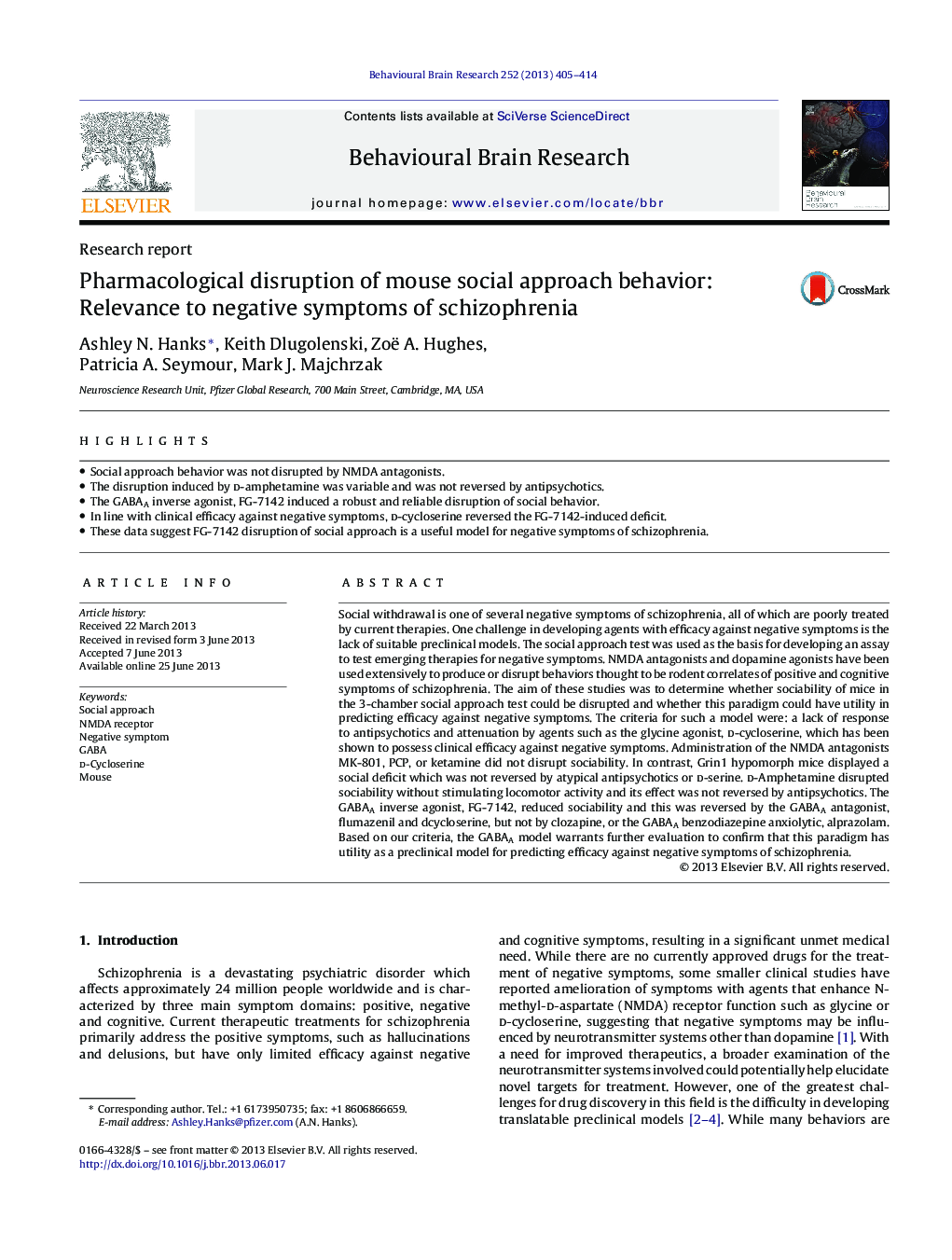| کد مقاله | کد نشریه | سال انتشار | مقاله انگلیسی | نسخه تمام متن |
|---|---|---|---|---|
| 4312631 | 1612980 | 2013 | 10 صفحه PDF | دانلود رایگان |

• Social approach behavior was not disrupted by NMDA antagonists.
• The disruption induced by d-amphetamine was variable and was not reversed by antipsychotics.
• The GABAA inverse agonist, FG-7142 induced a robust and reliable disruption of social behavior.
• In line with clinical efficacy against negative symptoms, d-cycloserine reversed the FG-7142-induced deficit.
• These data suggest FG-7142 disruption of social approach is a useful model for negative symptoms of schizophrenia.
Social withdrawal is one of several negative symptoms of schizophrenia, all of which are poorly treated by current therapies. One challenge in developing agents with efficacy against negative symptoms is the lack of suitable preclinical models. The social approach test was used as the basis for developing an assay to test emerging therapies for negative symptoms. NMDA antagonists and dopamine agonists have been used extensively to produce or disrupt behaviors thought to be rodent correlates of positive and cognitive symptoms of schizophrenia. The aim of these studies was to determine whether sociability of mice in the 3-chamber social approach test could be disrupted and whether this paradigm could have utility in predicting efficacy against negative symptoms. The criteria for such a model were: a lack of response to antipsychotics and attenuation by agents such as the glycine agonist, d-cycloserine, which has been shown to possess clinical efficacy against negative symptoms. Administration of the NMDA antagonists MK-801, PCP, or ketamine did not disrupt sociability. In contrast, Grin1 hypomorph mice displayed a social deficit which was not reversed by atypical antipsychotics or d-serine. d-Amphetamine disrupted sociability without stimulating locomotor activity and its effect was not reversed by antipsychotics. The GABAA inverse agonist, FG-7142, reduced sociability and this was reversed by the GABAA antagonist, flumazenil and dcycloserine, but not by clozapine, or the GABAA benzodiazepine anxiolytic, alprazolam. Based on our criteria, the GABAA model warrants further evaluation to confirm that this paradigm has utility as a preclinical model for predicting efficacy against negative symptoms of schizophrenia.
Journal: Behavioural Brain Research - Volume 252, 1 September 2013, Pages 405–414